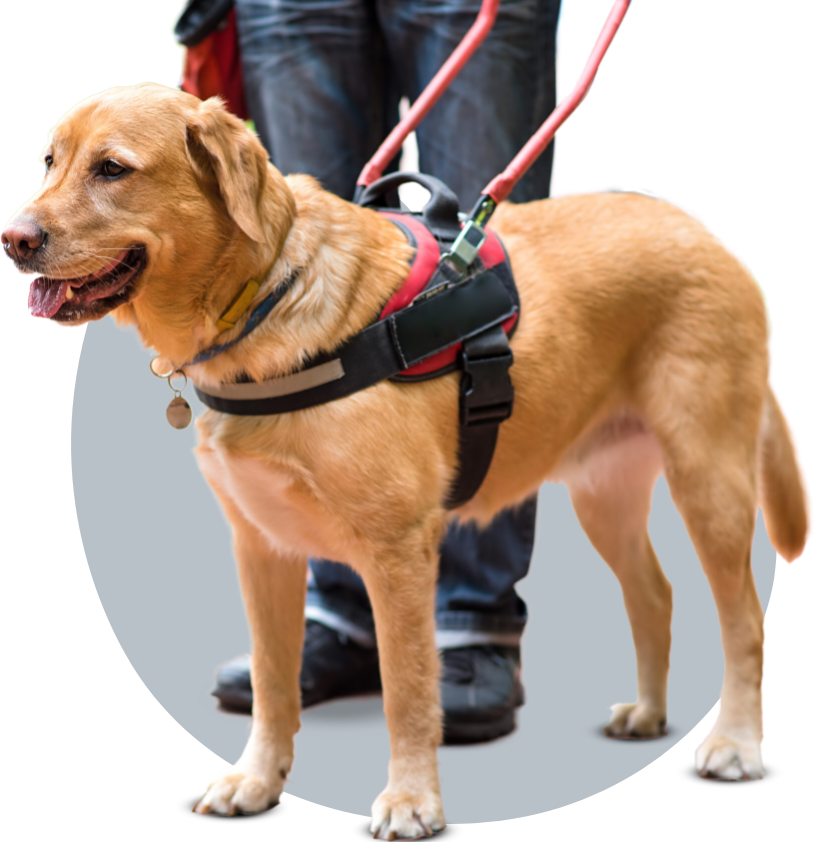National Service Animal Registry (NSAR) Legit?: An Unbiased Exploration

Welcome to the insightful exploration brought to you by the National Service Animal Registry (NSAR). In an effort to address concerns within the industry, we embark on an unbiased journey to examine and compare privately-owned registries for service animals and emotional support animals, with a particular focus on NSAR. We understand the importance of transparency and hope to provide an objective analysis of the industry, addressing concerns and shedding light on the legitimacy of non-governmental agencies.
Privately-Owned Registries
Privately-owned registries for service animals and emotional support animals have become prevalent, providing individuals with a streamlined process for obtaining necessary documentation. It is important to note that while the Americans with Disabilities Act (ADA) does not recognize registration, registration does come with its benefits.
Benefits of Registration:
Legitimization of Appearance: Registration provides a tangible means of legitimizing the appearance of a service dog or emotional support animal. This can be particularly beneficial in public spaces where individuals may question the legitimacy of an animal’s role.
Easier Access to Public Spaces: Some establishments and businesses may be more accommodating and understanding when presented with official documentation, easing access to public spaces for individuals with service animals or emotional support animals.
- Avoiding Confrontations: Identification also assists in avoiding uncomfortable and unwanted confrontations with management and/or employees of an establishment. It can prevent public humiliation from those who may be uninformed about service dog rights.
- Public Outings with Emotional Support Animals: While emotional support animals do not have the same legal rights as service dogs to accompany their handlers in public spaces, it doesn’t mean they cannot go out in public with their emotional support animal. We encourage individuals to call ahead and request accommodation, as it’s at the management’s discretion to allow access. As long as the business grants permission, no other individual may dispute this decision.
Travel Convenience:
- Registration can facilitate smoother travel experiences, as some airlines and transportation services may require documentation for service animals and emotional support animals.
- DOT’s Final Ruling (2021): The Department of Transportation’s final ruling in 2021 encouraged airlines to train their staff to look for identification markers such as vests, ID cards, leashes, and collars to help identify legitimate service dogs.
Accommodation in Housing: When seeking accommodation, especially in rental properties, registration may be considered as proof of the need for a service animal or emotional support animal, potentially making the housing application process more straightforward. It’s of paramount importance to ask a landlord what they require to receive reasonable accommodation for an emotional support animal or service dog. Housing and Urban Development state that a landlord may require an ESA or PSD letter for an emotional support animal or psychiatric service dog, but if they only require registration that is their right as the landlord.
NSAR’s Compliance with Federal Agencies
One of the primary concerns regarding privately-owned registries is their legitimacy in adhering to federal regulations. NSAR, in particular, claims compliance with key federal agencies such as the Department of Housing and Urban Development, the Department of Transportation, and the Department of Justice. This blog will investigate NSAR’s adherence to these regulations and evaluate the legitimacy of their services.
Our letter service (ESA or PSD) meets all the requirements set out by HUD. We assist individuals in legitimizing the look of their service dogs per DOT’s instructions for the airlines to look for these identification markers. Additionally, we help clients submit their DOT form to the airlines prior to their flight. Finally, we assist individuals in legitimizing the look of their service dog and/or emotional support animal to gain public access rights and help mitigate discrimination against disabled handlers, given that the DOJ doesn’t have its own registration/agency.

Addressing Concerns: Scam, Fraud, and Illegal Activities
To ascertain NSAR’s legitimacy, it is crucial to define terms such as “scam,” “fraud,” and “illegal”:
- Scam: A scam refers to a fraudulent or deceptive scheme designed to cheat individuals out of money, goods, or services. It often involves dishonest practices with the intent of tricking people for personal gain.
- Does Not Apply to NSAR: This term does not apply to NSAR as we do not cheat individuals out of money, goods, or services. All our services and goods are delivered/provided within the time frame stated on the website, as evidenced by our outstanding reviews of people receiving their products and services.
- Fraud: Fraud involves intentional deception to secure unfair or unlawful gain. It encompasses various forms of deception, such as false representation, concealment of information, or misleading conduct.
- Does Not Apply to NSAR: This term does not apply to NSAR as we do not falsely represent what is needed/required to receive reasonable accommodation for housing, airline, or public access. Conversely, we supply documents and identification merchandise to help an individual achieve any of these goals. Contact us today, and one of our expert representatives can help guide you through the industry and to the product that will best meet your needs.
- Illegal: Something deemed illegal is expressly prohibited by law. Engaging in illegal activities implies a violation of established laws and regulations, potentially resulting in legal consequences.
- Does Not Apply to NSAR: This term does not apply to NSAR. There is no state or federal law that makes it illegal to help individuals register and/or identify their service dog or emotional support animal. As one of the longest and largest standing service dog and emotional support animal registries, if illegal activity is conducted, NSAR and its competitors would not be in business today.
It is important to note that these terms DO NOT apply to the National Service Animal Registry. NSAR operates with transparency and integrity, delivering products and services as described, and adhering to federal regulations.
Conclusion
In conclusion, the National Service Animal Registry is a key player in the realm of privately-owned registries for service animals and emotional support animals. Through this unbiased exploration, we aim to provide a comprehensive understanding of NSAR’s credibility. By examining and addressing concerns surrounding NSAR’s legitimacy, we hope to contribute to a transparent and informed discussion within the industry. We hope, at the very least, before making a decision to register or not, you provide us an opportunity to allay any fears and/or concerns by calling us at 719-756-2634 and speaking to any one of our expert representatives, managed by Cody, the new CEO, a US Army veteran combat medic, with a degree in psychology. He is passionate about assisting those with physical and emotional/mental disabilities.
Brought to you by National Service Animal Registry. Learn more about us and how to qualify your pet as a service dog, emotional support animal (ESA), or therapy animal, TODAY!













































































